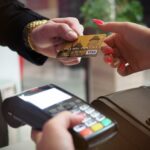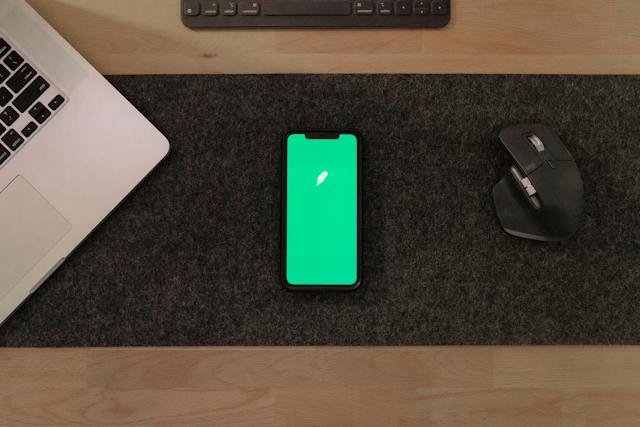Unveiling the Robinhood Spending Account: Early Paydays and Round-Ups
In the fast-paced world of finance, innovative solutions constantly emerge to redefine how we manage our money. One such groundbreaking development is the Robinhood spending account. In this comprehensive guide, we’ll delve into the intricacies of what a Robinhood spending account entails and how it can revolutionize your financial experience.
Understanding the Robinhood Spending Account
What’s a Robinhood Spending Account?
The Robinhood spending account is not just a conventional banking option; it’s a dynamic tool designed to empower users with a range of financial capabilities. From spending and paying to requesting money from friends, this account goes beyond the norm. Additionally, users have the option to participate in round-ups and even enjoy the perk of getting paid early.
The Robinhood Cash Card
At the heart of the Robinhood spending account is the Robinhood Cash Card issued by Sutton Bank. This physical or virtual debit card opens up a world of possibilities for users. Whether you prefer a tangible card or the convenience of a virtual one for online transactions and mobile payments, the Robinhood Cash Card caters to your preferences seamlessly.
Opening a Robinhood Spending Account
Steps to Open a Robinhood Spending Account
Opening a Robinhood spending account is a straightforward process. Once you’ve embarked on this financial journey, you gain access to a host of features that can redefine how you interact with your money. Here are the key steps to open a Robinhood spending account:
- Acquiring a Robinhood Cash Card: Upon opening a Robinhood spending account, you become eligible for a Robinhood Cash Card issued by Sutton Bank. This card acts as a gateway to a range of financial activities.
- Virtual Debit Card Option: For those who prefer a digital approach, Robinhood offers a virtual debit card. This virtual card can be used for online transactions and is compatible with popular platforms like Apple Pay, Google Pay, and Samsung Pay.
What Happens When I Open a Robinhood Spending Account?
Once you’ve opened a Robinhood spending account, several key events unfold:
- FDIC Insurance: The cash held in your spending account may be eligible for pass-through FDIC insurance of up to $250,000, ensuring the safety of your funds in the event of a bank failure.
- New Routing and Account Numbers: You’ll be issued new routing and account numbers, enabling seamless direct deposit transactions.
- Opting into Round-Ups: The Robinhood Cash Card allows you to opt into round-ups, rounding up your transactions to the nearest dollar and investing the spare change.
- Early Payday Option: Enjoy the flexibility of getting paid up to 2 days early, providing a financial cushion when you need it most.
- Recurring Investments: Opt into paycheck recurring investments, directing funds into equities in the brokerage account and cryptocurrencies in the crypto account.
- Peer-to-Peer Transactions: Utilize the Pay & Request feature to send and receive money on Robinhood, with the added bonus of earning up to $25 when you invite friends to join.
Important Notes and Monitoring Your Finances
Tracking Your Earnings
As you navigate the Robinhood spending account, it’s crucial to stay informed about your financial activities. Track your interest earnings in the ‘Account → Investing’ section, ensuring transparency in your investment journey.
FAQs about Robinhood Spending Account and Cash Card
- Q: What is a Robinhood spending account, and how does it differ from a regular bank account?
- A: A Robinhood spending account is a versatile financial tool that goes beyond traditional banking, allowing you to spend, pay, request money, and enjoy additional features like round-ups and early payday.
- Q: What benefits does the Robinhood Cash Card offer?
- A: The Robinhood Cash Card, issued by Sutton Bank, provides fee-free access to 90,000 ATMs, enables contactless payments, and offers a virtual debit card option for online transactions.
- Q: Can I get a physical debit card with the Robinhood Cash Card, or is it only virtual?
- A: You have the option to choose between a physical or virtual Robinhood Cash Card, catering to your preference for tangible or digital transactions.
- Q: How do I open a Robinhood spending account, and what happens once it’s open?
- A: Opening a Robinhood spending account involves a straightforward process. Once opened, you receive a new routing and account number, a Robinhood Cash Card, and the ability to opt into various features like round-ups and early payday.
- Q: Is the cash in my Robinhood spending account insured?
- A: Yes, cash held in your spending account may be eligible for pass-through FDIC insurance of up to $250,000, providing security in case of a bank failure.
- Q: What is the Pay & Request feature, and how can I utilize it on Robinhood?
- A: Pay & Request allows you to send and receive money on Robinhood, and you can earn up to $25 when you invite friends to join this financial platform.
- Q: How can I track my interest earnings on Robinhood?
- A: You can monitor your interest earnings in the ‘Account → Investing’ section, ensuring transparency in your financial activities.
- Q: Can I set up recurring investments with the Robinhood spending account?
- A: Yes, you have the option to opt into paycheck recurring investments, directing funds into equities in the brokerage account and cryptocurrencies in the crypto account.
- Q: What are the advantages of using the virtual debit card option with Robinhood Cash Card?
- A: The virtual debit card offers a secure and convenient way for online transactions, compatible with platforms like Apple Pay, Google Pay, and Samsung Pay.
- Q: How does the Robinhood spending account enhance my financial flexibility?
- A: The Robinhood spending account provides features like early payday, fee-free ATM access, and contactless payments, offering a level of financial flexibility that traditional accounts may lack.
Tags: Robinhood, Spending Account, Cash Card, Virtual Debit Card, FDIC Insurance, Direct Deposit, Round-Ups, Early Payday, Recurring Investments, Peer-to-Peer Transactions, Financial Management.














